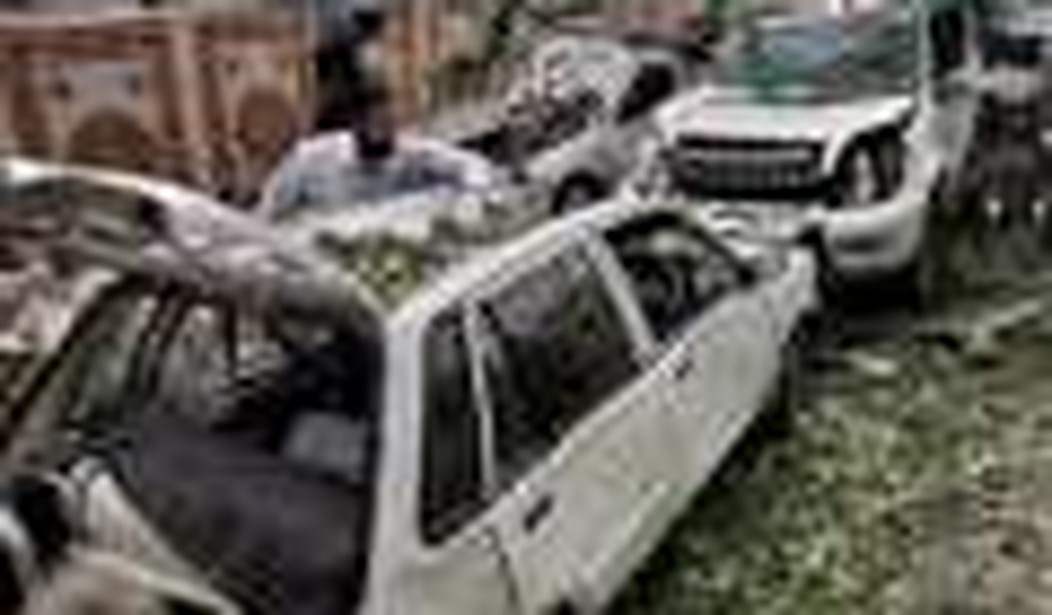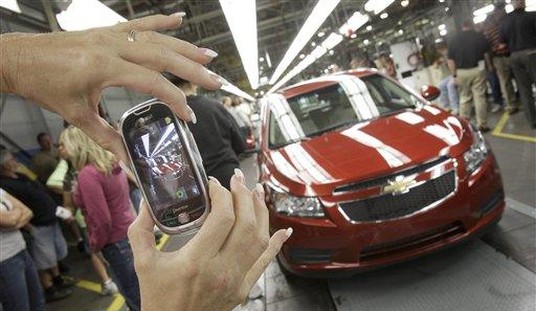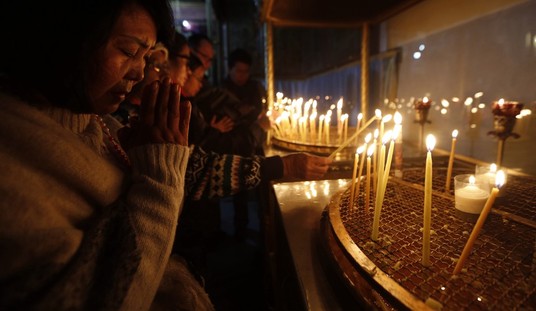I happened to be visiting Copenhagen at the time of the recent car bomb attack on Denmark’s embassy in Pakistan for which al-Qaeda claimed responsibility today. Hence, I was able to witness a Danish politician looking into the television camera and declare that their little Denmark appears to be up at the top of the terrorist target list with the United States and Israel.
What’s amazing about the statement is that he’s right.
Why has this tiny state, with a population smaller than that of little Israel and best known for its quality cheeses and butter, become Public Enemy Number Three in much of the Muslim world?
If America is the Great Satan and Israel is the Little Satan, then Denmark seems to be the Itsy Bitsy Satan. The immediate answer, of course, is the cartoon controversy, which in itself is a pretty bizarre story. Back in September 2005, the magazine Jyllands-Posten decided to show support for freedom of speech by running critical cartoons about Islam and its founder, Muhammad. But the resulting explosion of hatred-which included burning Danish embassies and flags-did not just happen spontaneously.
Less well-known is the fact that a group of Danish immigrant imams set out to provoke the protests. In doing so, they also added to their publicity package cartoons that had not been published in the newspapers’ series, in fact had never been published anywhere. These proved to be the most “provocative” in making Muslims angry. The cartoon controversy affected far more countries than Denmark, but what was most significant was the Danish reaction. Contrary to fellow Scandinavian states Sweden and Norway – where, in one case, the foreign minister pressured an Internet site off the air so as not to “offend” Muslims – the Danes stood firm.
Copenhagen hasn’t been strident but it has been tough, clearly to the dismay of some companies that have big export interests in the Middle East. A thousand years ago, the Vikings were the consummate international terrorists, looting monasteries and blackmailing rulers into a policy of paying to avoid being attacked. Today, the roles are reversed, at least in Norway and Sweden. There does seem to be a civilizational death wish among large portions of Norway’s intelligentsia and officialdom, one of whom said there was no Swedish culture worth protecting. Ironically, the extreme permissiveness that northern Scandinavia, with its virtually one-party social democratic states, has been famous for, has caved in all the faster.
A century or so ago, Denmark was a pretty poor place. Things were changed not by a welfare state but by a lot of hard work, entrepreneurship, land reform, and cooperatives. And, of course, during World War Two, of course, the Danes saved almost their entire Jewish population, an achievement no other European country even approached. Still, tendencies toward nervousness or fatalism are not altogether absent from Denmark.
Notably, a recent history of the country ended in the year 2000 not just because that’s a convenient date but, according to the author, due to the fact that Denmark doesn’t have a future. Yet here there is much more confidence. There is no rush to self-censorship, no over-the-top political correctness or smug multi-culturalism. Yet immigrants are treated pretty well, even compared to countries which make a fetish out of loving the “other” and hating the self.
Talking about limiting immigration is not taboo but there’s no shortage of immigrant hijabs among passers-by, yet Danes don’t seem to feel that what others choose to do should affect how they live. Especially significant is the fact that Denmark is the only place in Europe where there is a significant moderate Muslim political presence, personalized in the popular politician Naser Khader. Khader comes from parents who are Palestinian and Syrian, spent his early childhood in Syria, and is named after Egyptian radical nationalist president Gamal Abdel Nasser. Yet Khader’s devotion to Western democratic values is such that a radical Danish imam threatened to kill him.
Khader’s New Alliance party is small but plays a key role in coalition building. As proof of Danish “exceptionalism” the attack in Pakistan provoked no calls for surrender. Obviously, the Danes aren’t thrilled at their new-found notoriety but they don’t seem to think it possible to do much about it.
The left wants to increase aid programs in Muslim-majority countries; the right advocates back. But no one is panicking. Why did al-Qaeda attack the Danish embassy in Lahore?
That’s a very interesting question. It is important to note that this has been a bad year for al-Qaida. Its ability to stage attacks has declined; its insurgencies in Algeria and Saudi Arabia have been largely shut down; and it has not been too successful in penetrating Lebanon, Jordan, or the Palestinians. Most notably, the U.S. military surge in Iraq along with the Sunni tribes (albeit motivated by big American pay-offs) has caused many to turn away from al-Qaida. So the group had to do something, to prove it still has teeth. On the list of target toughness, a Danish embassy is simply going to lack the security invulnerability of its U.S. counterpart.
Another factor: Al-Qaida has been criticized for killing so many Muslims in Iraq, Algeria, and elsewhere. It needs a target that’s going to be popular. By going after Denmark, al-Qaida is saying that it’s fighting for the most basic Muslim interests, protecting their most cherished leader. Denmark is tailor-made for this reputed bad guy role.
That doesn’t mean there will be a wave of attacks on Denmark or even that the Lahore bombing is going to make al-Qaida more popular, but it’s a reasonable strategy from that group’s standpoint.
Meanwhile, Denmark has passed another test. Perhaps other Western countries will learn something from it.









Join the conversation as a VIP Member